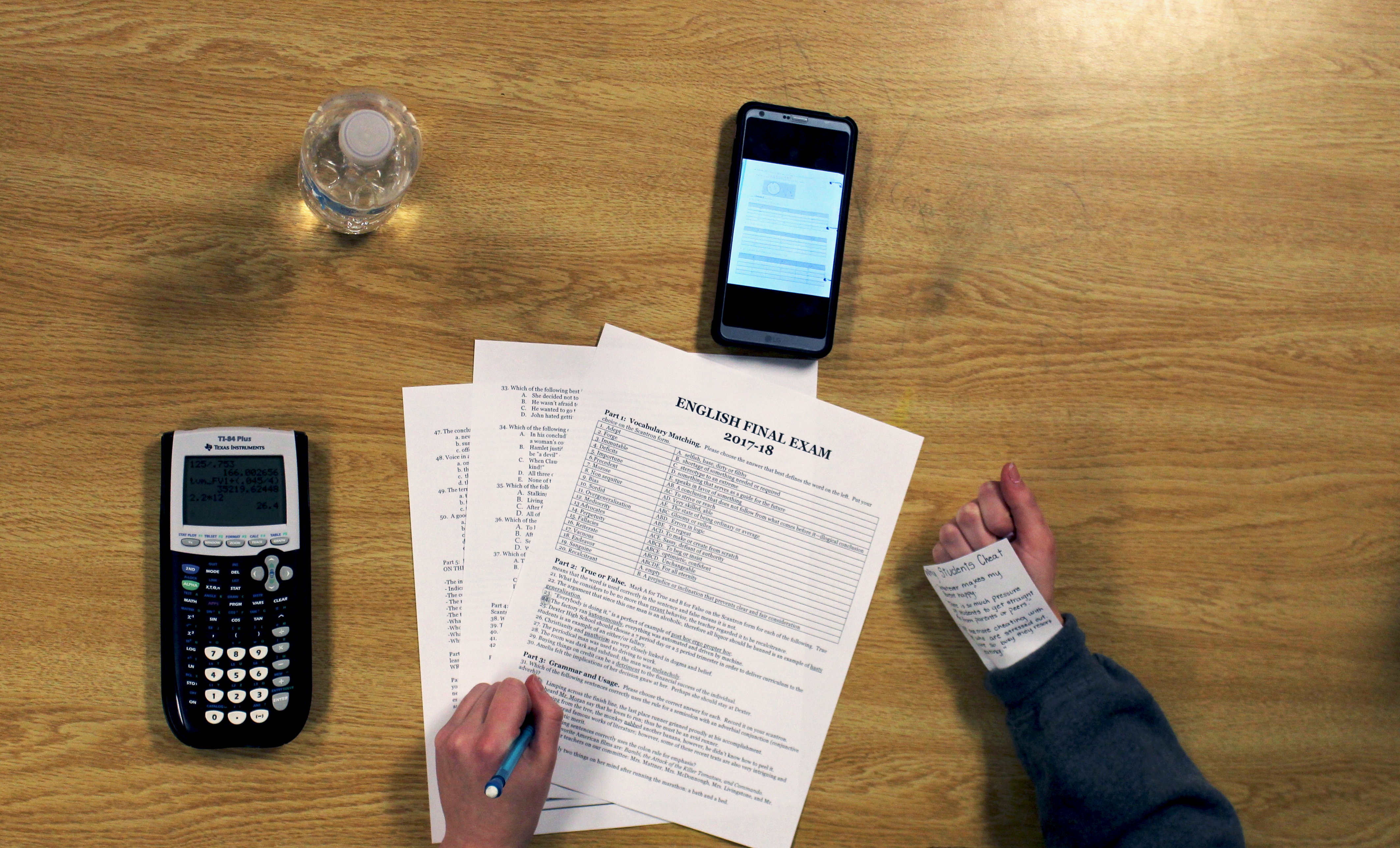By Staff
Academic dishonesty and education go hand in hand, and never goes away. While this can range from copying homework to blatantly cheating off someone else’s test, it has become even more complex and commonplace in recent years. Yet, the Dexter Community Schools’ policy is vague and inconsistently enforced at DHS.
Like everything else, cheating has evolved with the times, especially since technology has skyrocketed. Students have the internet at their fingertips; all they have to do is figure out a way to keep it there during a test.
The current policy states that “All instances of cheating will result in a zero given on the assignment, test, quiz, project, or measurement tool, and all cheating will be considered a Level II Infraction at DHS.”
However, this policy is not followed with consistently throughout DHS. Some teachers will give a student a zero on the assignment they are caught cheating on without notifying administration. Others will allow the student to redo the assignment for some points, while some teachers allow students to make up the assignment for full points. These different procedures stem from various philosophies on what grades should reflect.
“When you put a zero and average everything you are mixing behavior and skill, apples and oranges,” Spanish teacher Señora Maria Vazquez said.
Administration is currently working on creating a new policy; however, there is a large deal of controversy over whether a grade should reflect a student’s behavior or their skill.
“My opinion is that, to the greatest extent, we need to separate skill and behavior,” Principal Kit Moran said.
While these two things are separate, students don’t learn without consequences for their actions, and Saturday schools are one of the most ineffective forms of punishment. Students told The Squall they rarely care enough about losing part of their Saturday.
If a driver gets enough speeding tickets, a driver eventually gets their license taken away; the consequences for cheating should have similar ramifications.
While being a multifaceted problem, a policy that specifies what counts as cheating and a more meaningful progressive discipline would help reduce cheating.
Since there are various levels of cheating, there should be different punishments for different forms. For example, someone who copies a couple math problems from a friend doesn’t deserve the same punishment as someone who plagiarizes an entire English paper. Furthermore, cheating on a test or paper covers up a person’s skill and is a behavior that interferes with a student’s grade more than copying homework.
The consequences for cheating should be both progressive and meaningful. A student who only cheats once deserves a consequence that teaches a lesson, but a serial cheater deserves a more severe punishment.
These consequences should be behavioral and academic due to the duality of the offense. On the first major offense, a student caught cheating should be given the opportunity to earn back half the points on the assignment along with having to call their parents and explain the situation. On the second offense, the student should be given the opportunity to earn back half the points on the assignment but is ineligible for sports and any other extracurricular activities for one week, and consequences escalate from there. In order to fulfil this policy, there would have to be greater communication between the world of academics and the world of extracurriculars.
Yet, this policy is important to teach students about the future. Those who fall back on cheating in high school are unlikely to stop in the future, which could lead to expulsion from college or even landed in court in the working world. And isn’t the purpose of education to prepare kids for the future?


